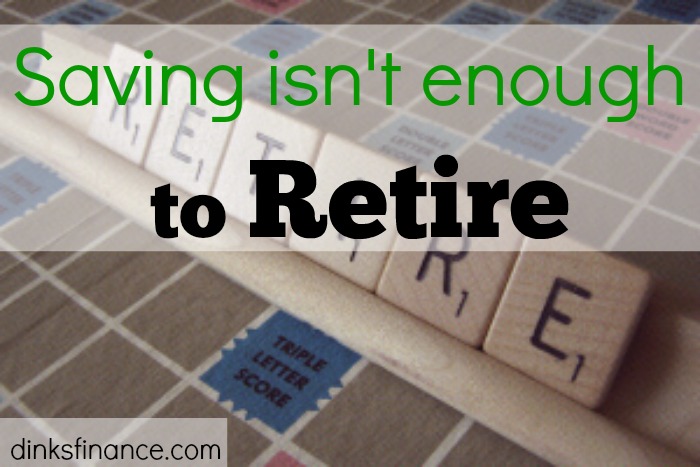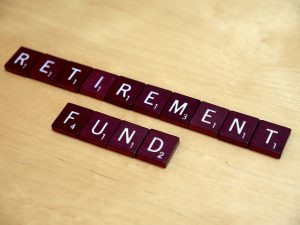Good morning Dinks. Let me ask you a question, how far away are you from your retirement date? Some of us may want to spend our lives flourishing in our careers and plan to retire at 65, some people want to work hard and retire early at 55 and some of us save every single penny to take our retirement as soon as possible, maybe even in our 40s. So which one are you?
Are you saving or planning for retirement?
A lot of the books we read and advice we hear tells us to save, save, save for retirement. But what if saving isn’t enough. Well it’s not. We can’t just blindly save for retirement because money is only a part of retirement. The truth is retiring – at any age – takes planning and the dollar signs is only one aspect of the plan.
Actually I should say that the amount of money you need in retirement is the final outcome of four other contributing factors. Before you start saving for retirement you need to know what you want to do, where you want to go and how you want to live when you retire.
Income vs. lifestyle in retirement
The truth is a lot of people don’t see retirement as a planning process, especially older generations. My parents didn’t. They worked, supported a family of four and saved whatever extra money they had. My Dad’s employer offered an employer-sponsored pension plan. Once his total age plus years of service equalled 85 he could retire with a full pension. This is the only goal my Dad worked towards his whole life and just as planned he retired at 55 years old and has never looked back.
My Dad didn’t know how much he needed to support his lifestyle in retirement because he didn’t know what he wanted to do, all he knew was that he wanted to retire as soon as he could because he didn’t want to work anymore. Now my Dad’s lifestyle is based on his income, not the other way around.
Set realistic retirement goals that you can afford
Your retirement goals need to reflect your current income as well as your projected needs during retirement. This includes things such as where do you want to live, how do you want to live, what do you want to do in your spare time and what type of lifestyle do you want to have during retirement. Once you determine the type of retirement you want to have you will be able to figure out how much you need to save.
You will need to save a portion of your current income to help support the lifestyle you want in retirement. If you set unrealistic retirement goals that you can’t afford to support you will end up not saving anything and that’s not good. I would love to live on a yacht in the South of France when I turn 55, but that’s just not realistic because my current income won’t allow me to save for such an elaborate retirement goal.
Photo from Flickr




I’m looking to not only save money to draw from in retirement, but also create revenue streams that are self-sustaining, for example investing in a business that pays me a share of the profit each month…of course there’s no guarantee that the business will remain profitable either…
Great blog post. Excellent information. Let me share my experience. Currently, I’m creating a corpus through my primary income and additional income streams (especially through Forex trading at Corner Trader). As I was almost bankrupt a few years back, I’m starting it small and slow. But I’m increasing my corpus at least and currently I’ve zero debt. For retirement, I’ve decided what lifestyle I prefer and what’s achievable for me. Then factored in the average inflation rate to check what corpus I need around 60 years of age. So, working on that end slowly but steadily.
I think it is important to consider what kind of life style you want after you retire. Our parents worked in hard physical labor jobs and their bodies were worn out from the labor so their idea of a good retirement was to not have to get and up go to work. They were happy just to putter around the house and garden. We do hard physical labor and it is getting more difficult to put in 10-12 hour days on your feet doing physical labor as we approach 60. Unlike our parents we can not count on social security or pensions. We have to keep working but in the last 10 years we are building a business on the side that we can use for cash flow until we get too feeble to work and have to live off our savings. I wish I would have started the business earlier then we could have retired at 55. I don’t think you can live off your 401k savings. I saved the maximum from when I was in my 20s and it is not enough, especially because you have to buy gap insurance on the open market before medicare kicks in.
Pingback:Find a work life balance: Relationship style - DINKS Finance | DINKS Finance